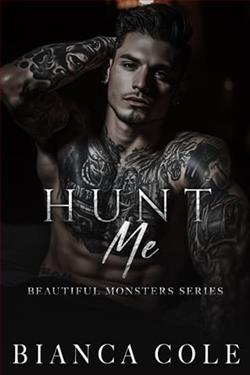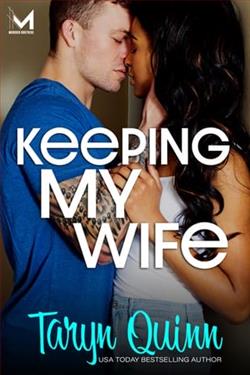Page 50 of Forced Bratva Bride
“Built on blood,” I replied, not sure why I was saying these things to her, of all people.
Her voice was quiet but certain. “You did what you had to, right?”
We sat in silence for a moment, thinking of our families. I looked at her, really looked, and saw resilience shaped by pain. For a brief, dangerous moment, I allowed myself to imagine a different world where our last names didn't matter.
“I know a place I'd like to show you,” she said suddenly, breaking the spell. “If you don't mind.”
“Lead the way.”
Twenty minutes later, I pulled the car up to a large Victorian house set back from the road. A sign out front read “Hudson Valley Children's Home.”
“An orphanage?” I asked, confused.
Larissa nodded, a strange intensity in her expression. “I come here sometimes. The children... they are amazing.”
Inside, we were greeted by the sound of laughter and the sight of children playing in a large common room. A middle-aged woman approached us, her face lighting up when she saw Larissa.
“Miss Ajello! We weren't expecting you today.”
“It was a spontaneous visit, Mrs. Bennett. This is my friend, Gio.”
Friend. The word felt both inadequate and wildly optimistic.
“Any friend of Larissa's is welcome here,” Mrs. Bennett said warmly. “The children are just finishing their art projects. Would you like to see them?”
Before I could respond, a small boy with dark curls spotted Larissa and came running over. “Miss Larissa! Did you bring Mr. Gastone?”
I stilled, suddenly feeling as though I was being trapped in a situation for which I hadn’t been warned. She didn’t bring me here out of innocent motives; that much I realized instantly.
Larissa crouched down to his level. “Not today, Tommy. But I brought a new friend.”
The boy looked up at me suspiciously, and I felt oddly exposed under his tiny, scrutinizing gaze. “Is he nice?”
Larissa glanced up at me, her expression unreadable. “Yes, Tommy. He is.”
For the next hour, I watched Larissa move among the children with practiced ease, knowing many by name and asking about their projects and lessons. They adored her; that much was clear. Something in me shifted as I observed this side of her—this gentle, nurturing aspect I hadn't expected.
I found myself drawn into their activities despite my initial discomfort at being thrust into this plan. A little girl with braids insisted on showing me her drawing, and I crouched beside her, nodding seriously as she explained the purple blob that was apparently a dragon. A boy asked if I was strong enough to lift him, and before I knew it, I was hoisting squealing children into the air, their small bodies light in my hands that had done such different work.
Later, as Larissa helped the staff distribute snacks, I stepped into the hallway for a moment's peace and noticed a plaque on the wall. I moved closer, reading the names of donors. My eyes stopped on one: “The Ajello Foundation.”
“Your family funds this place,” I said when Larissa joined me a few minutes later.
She nodded. “For the past five years. Gastone started it after we found out that one of his men had been raised here.”
For some reason, hearing that made me angry. It was as though she was trying to prove to me how innocent her brothers were, how good, and I was the one who had been in the wrong.
I stared at her, something cold forming in my stomach. “Is that why you brought me here? To show me what a saint your brother is?”
Her eyes widened. “No, I—”
“This whole day,” I said, the pieces falling into place, “was just a strategy, wasn't it? The shops, the café, the stories about your childhood—all leading up to this moment where I'm supposed to see Gastone Ajello as some kind of humanitarian instead of the man who's trying to push us out of our territory.”
“That's not fair,” she protested, her cheeks flushing. “I wanted to show you a part of my life that matters to me. A part most people don't see.”
“Most people don't need to be convinced to spare your brother's life,” I replied coldly.
Her face paled. “What?”















